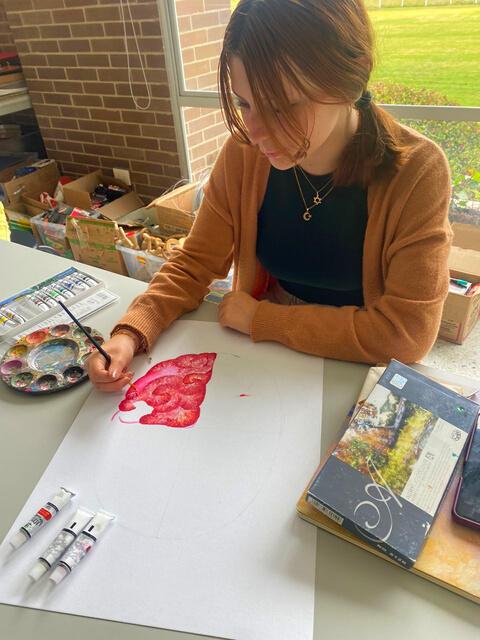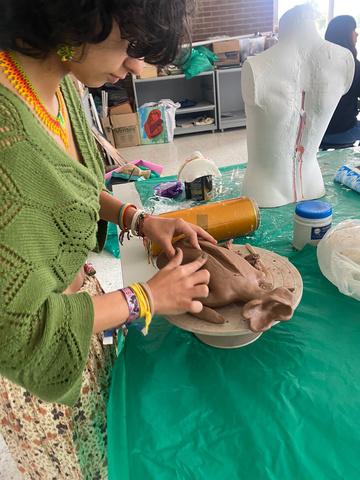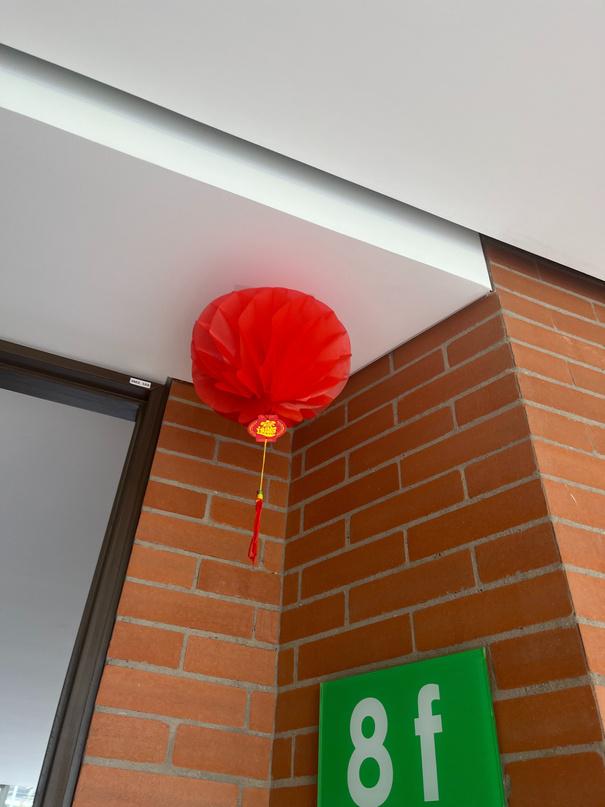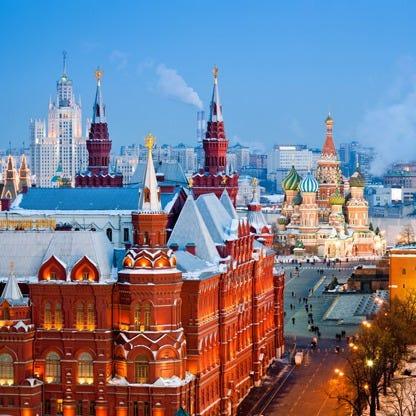MOVING TO COLOMBIA TRANSFORMS
IMMIGRANTS' IDENTITIES
UNIQUE UNIONS
CHINESE NEW YEAR: A FESTIVITY WORTH THE WAIT
CULTURE MIX


MOVING TO COLOMBIA TRANSFORMS
IMMIGRANTS' IDENTITIES
UNIQUE UNIONS
CHINESE NEW YEAR: A FESTIVITY WORTH THE WAIT
CULTURE MIX

CULTURE, TRAVEL, AND LIFE EXPERIENCES
DO I ACKNOWLEDGE THE IMPORTANCE OF ART IN LIFE?
“Art is not a mirror held up to reality, but a hammer with which to shape it.” Berthold Brecht




At Gimnasio Vermont, art is taught as a way to exteriorize emotions, feelings, and thoughts Children from the age of 5 begin a journey that will continue throughout their whole school life. As a student myself, I know what this class represents I have spent 13 of my 16 years alive, experiencing the art program’s virtues and flaws.
In this article, I will address the factors that give the school's art program an identity To do so, I will be speaking from my own experience and using information that an art teacher that has walked this journey with me has kindly given. Her identity will remain hidden, and I will refer to her as “Alicia ” She has an admirable career and has made art a significant part of her life. She studied industrial design at TADEO university, followed by an undergraduate degree in art history at La Sabana university. Not tired of getting involved in the magic of arts, she traveled to Florence, Italy, and dedicated two years of her life to learning about art conservation and restoration. She now works at Gimnasio Vermont and has taught me almost everything I know, not only about arts but their importance in life.




students and later divide it by the needs of each grade This year’s topic is the language of art, and, for example, in tenth grade, we are working on the language of migration; in sixth grade, the language of the body; in fifth grade, the tridimensional language, etc. They try to divide terms by first: techniques, second: investigation, and third: personal project This is with the objective of taking advantage of the few weekly sessions that art is given, especially later in your school life when art becomes 45 minutes that you have every 15 days.
Written by Geraldine TorresDo
As Alicia said, there is explicit prejudice against the arts, even humanities in general I'm sure you have heard at least one person lessen the importance of humanities by explaining that they do not produce money in contrast to the exact sciences This is such a huge issue in Colombia Alicia talked about her time in Italy, explaining how there, everyone appreciates art since Europe's cultural foundation was created through it, for example, in architecture As she said, in Italy, you can breathe, smell, and feel art in the streets Here people think that art is only throwing some paint on a canvas.
Sadly, at school, art also tends to lose its importance. As the years pass by, students begin questioning why instead of having time for other subjects, they still have to attend this class I have sometimes done the same, if I may accept it But I’m sure that if the stress levels and the great number of tasks didn’t increase in such an abrupt way, students would have the time to develop a deep recognition of the importance of learning art, even if they don't wish to focus on it later in life It holds such a deep connection with philosophy, culture, emotions, and investigation; it is multidisciplinary This is why I wish to bring to the table the great mistake that the school makes by not giving it more hours a week
I can testify that this school year, I have lost almost four classes, and since teachers also have this prejudice about art, we arrive late very frequently due to being dismissed at the wrong times Due to this, Alicia and her workmates find themselves trying to decide if it's more important to focus on techniques to improve our artistic abilities or focus on creativity and developing an artistic way of thinking. If there was time to study theory, technique, and creativity, students could develop new ways of approaching issues Different from the ones taught in the classes that are respected and given plenty of hours a week
Nevertheless, I must mention how wonderful the decision to include art in the subjects for the International Baccalaureate is. The IB program is open to every student that shows interest in the exhibition; by attending, students are shown that art may be as complex as a physics problem; it even works with subjects like chemistry and math There should be more opportunities for the art program to be introduced to other subjects and their programs so students can develop not only a logical way of thinking but also a creative one.


On the other hand, Alicia suggests that the school should listen more to the student's opinions She exemplifies this by mentioning that last year, in eleventh grade, students could not develop the planned activities due to the lack of class time So she asked them what they wished to learn instead, and now their program teaches them how to develop their art view, for example, to understand and give their opinion about a piece shown in a museum or exhibition

The art program at school is thought of as a way for students to develop new tools to face life in the future To learn about philosophy, culture, creativeness, emotions, investigation, etc Unfortunately, it has to battle against time management issues, prejudice, and lack of recognition. This is why we must begin by asking ourselves, do I acknowledge the importance of art in my life?





And to answer this question, I will use Leonardo Da Vinci as an example He invested a lot of time in studying several fields of science to create detailed and realistic paintings He studied anatomy to understand musculature better He studied physics to learn how light reflects off a subject. He studied chemistry to create the perfect paints He also helped pioneer the study of the human body with his sketches of human proportions and parts. He did all this through his profound understanding of the importance of art in life
Amsen,E.(2021,December10).LeonardoDaVinci’sScientificStudies,500 YearsLater.Forbes.https://www.forbes.com/sites/evaamsen








 By Emilia Ladino
By Emilia Ladino
During these last years, its reputation among foreigners has improved, and it is starting to be recognized as the paradise it has always been Reason why the net migration rate for Colombia in 2022 was -1.946 per 1000 population, a 364 44% increase from 2021 (Colombia Net Migration Rate 1950-2023, 2023). This increase in foreigners is evidenced in our school, Gimnasio Vermont, which counts with a great variety of nationalities among its staff and students When speaking with some of them, the imprint Colombia has on foreigners' identities is unmistakable; they all claim that the country and its splendor have altered their own ways of living and understanding their surroundings
olombia is a country with a unique culture, boasting a diverse landscape, and breathtaking natural beauty; which undoubtedly has a significant impact on all of its visitors and e d i t o r i a l

For starters, we consider it pertinent to define identity, which are those personality traits, abilities, beliefs, and others characteristics that define who you are as an individual.
To understand the impact Colombia has on immigrants, we interviewed 3 different teachers at Gimnasio Vermont: Kateryna Buluy, from Ukraine, Tatiana Zaitceva, from Russia and Meng Xiao, from China When talking to them, they all shared a remarkably similar perspective and acknowledged that they experienced significant cultural shocks upon arriving in Colombia Initially using Spanish on a daily basis was quite challenging, especially for Tatiana, who affirms having a limited amount of previous knowledge. Furthermore, they all talked about how amazed they felt by the charismatic, enthusiastic, and positive Colombian people

When asking them if Colombia has impacted or changed their own ways of being or living they all agreed The three of them concurred on two aspects: they all learned to become more open-minded and how to start enjoying life In the first place, Kateryna, who has been in Colombia for eight years, highlighted how people here have helped her change for the better and grow up positively. She states becoming more friendly and kind toward others, explaining that European people are more closed up in their problems, while we have a wider communication which has helped her open up
On the other hand, Tatiana, who has been in Colombia for five years, explains that when she talks back with her friends in Russia she evidences how different their ways of thinking are now, and how broader her perspective of the world has become She further explains that her ways of speaking have changed and she has adapted many Colombian gestures, starting to express herself differently Lastly, Melissa, who has been in Colombia for seven years, claims that since she moved here, she has become a completely different person. Our mandarin teacher finally learned to unwind, relax, live life to the fullest every day, and have fun, not being in a rush every day like in China, but taking things slowly.
All these aspects are hugely impacted through migration, as new traditions, new people, and new experiences are introduced.
Moreover, when talking about their identities, taking into account their profession is quite important. As it is what they are passionate about and do every single day. And they all agree on having professional development upon starting to teach in Colombia. The three teachers highlight how boundaries between students and teachers, are completely different here In Colombia students are quite more open and communicative, they are critical, and always want to know why; why a certain task was assigned, why are they learning this topic, and why are they seeing this subject, meaning they question everything they see, hear, write or read. They are also quite warm and

like talking to teachers about topics other than school related. Lastly, Colombian students are not all about rules, but they want to enjoy their process of learning and live to their fullest All these aspects were highlighted by the teachers, and they explain how these things have also changed them. They have learned about teaching in different ways, as they stated that in their native country, they developed their role of a teacher in a more serious, earnest, or humorless way and with a quite afar relationship with students. However, now they feel like they have learned how to become more open-minded when working and they learn every day new things from their students.
Experiencing Colombian music, cuisine, coffee, traditions, nature, views, and landscapes undoubtedly broadens immigrants' perspectives of the world.
Besides, its jovial and passionate people, definitely teach foreigners about enjoying life and becoming open-minded. Furthermore, when you move to Colombia your work environment would change which may lead to professional development As we saw with the three teachers, all of them learned about different ways to do and enjoy their jobs. All these transform characteristic traits and abilities that define who you are as an individual. Taking into account the definition of identity, all what Colombia has to offer, and that these three teachers represent not only their point of view but the one of a sizable group of people that have moved to Colombia, we can understand it is neither rational nor true to think that moving to Colombia doesn't alter people's lives, as it clearly transforms identities

Tamale, a typical and delicious Colombian dish. For those who don't know about it, it consists of corn flour dough stuffed with meat, chicken, pork, carrot, beans, and many more ingredients, wrapped in corn or banana leaves, and steamed or baked Depending on where you eat it, the ingredients vary and is presented in different ways. When you open it and taste it, you can feel the mixture of all the ingredients, but if you try different types of tamales they will all taste different, that's how Colombian families are, each of them is different from the others because of the different cultures and traditions, but always united
I had a conversation with two foreigners, Aaron Cody from the United States and Kateryna Buluy from Ukraine who told me about families in their culture
Something really interesting about this was that both said that at the moment of comparing family union in their countries to the way families in Colombia are, they both agreed that here in Colombia the relationship between family members is much closer than in their cultures

For example, Aaron Cody made something very clear and said that the United States is a country characterized by money, power, and the idea of the American dream, when people think about the United States, they do not think about family units and close ties between the family members, for example, grandchildren and grandparents

Mr. Cody said, in the United States grandparents tend to give a lot of space to their grandchildren and do not get so involved in their lives, instead here in Colombia it is really different since there is always huge support from most grandparents for their grandchild lives and end up being like second parents to them. Apart from this, we usually think that on special dates such as Christmas and New Year, families should be together, but maybe we have this perception because of Colombian culture which practically says that this special dates must be celebrated with your whole family, eating, talking, traveling and sharing with others, but this does not actually happen in all countries. For example in the United States, Christmas Eve is a time of the year when families do reunite, but clearly in a very different way than Colombians do, on the other hand on New Year's people tend to travel with friends, and family is not as significant as here in Colombia Indeed, Mr Cody said that “In New Year's people rarely stay with their family ”
On the other hand, there's another country with a different culture, Ukraine When I talked to Kateryna Buluy I noticed that it is not as similar as the United States Families in Ukraine are much closer than families in the USA but still, she thinks that in the Colombian culture, this is much more pronounced, she actually said that Colombian families are co-dependent, and the connection is much stronger Something Aaron and Kateryna said was that here in Colombia it is not so often that adolescents leave their homes early and become independent in comparison to their countries thanks to these strong ties and clearly the different cultures Although she has this perspective, she also said that in Ukraine family is key in their lives, the relationships are based on friendship, moral and financial support

For example, on special dates is when family comes together more than ever, and something they like doing together is cooking These dates are really special in Ukraine since in some cases family members do not live close to each other, so holidays, like Christmas and New Year, are the perfect timing to get together. Throughout the whole conversation with Kateryna, I realized that families in Ukraine have their own cultures and traditions that make them united in their own unique way, and is actually something very beautiful.
Family union, for me, is something very significant and much more pronounced here in Colombia, than in other countries I am Colombian and have lived here throughout my whole life Since I was little, my parents always taught me that family should be and is a very important aspect of my life, since it is a support and is full of people who love me and want the best for me. My family has always been close to each other and have a lot of traditions, for example, Christmas and New Year, it is practically a sin if we don't spend them with family and instead go with friends, and I believe that this is mostly true in all Colombian families because it is something that comes from our ancestors We also have the custom of making a lot of reunions and going out for lunch, or to someone ' s house, and I consider that what makes families so close is to see each other often or at least talk to each other even if it is not a special occasion Something very characteristic of Colombian families is that somehow everyone knows everything that happens, and they always find out about stuff that you don't want them to find out, this might be one of the consequences of being that close, but maybe this is also a reason for it.

At the end of the day, it is nice to have a family to rely on that can support you whenever you need it. Nevertheless, talking to people from other countries and cultures helped me understand that every culture is different, and every family is united in their own way, the fact that they do not have the same traditions as Colombians do, does not make them less unified So I invite you all to talk to people of other countries, to learn about different traditions so that you can have different perceptions of the world and be more open-minded


If you enjoy delicious food, spending time with your loved ones, and dazzling fireworks, the Chinese New Year celebration might be just for you These are some of the characteristics that make the festivity so special, a unique occasion people look forward to with glee. The New Year has the power to bring families together, give hope for a better future and, for several individuals, it can be the start of a new chapter in their lives
After interviewing my Chinese teacher about it, I got a wider view about the celebration, and a glimpse inside her traditions and customs The story behind the Chinese New Year was what caught my attention the most because it uses mythological creatures to explain the reasons why they started to commemorate this date in the first place. The legend is the following: a long time ago people from China won the war against the monster named Nian (年), which means “year” in mandarin To defeat the mighty beast they used fireworks as weapons, which allowed them to be victorious As well, the tale can be interpreted as a symbol of the citizens trying to chase away misfortune, bad luck, and sickness with the colorful lights
ReviewerThere is a diversity of positive aspects about the Lunar New Year, but the best part is that you can share them with your friends and family members The purpose of this blissful experience is to leave the past behind and start the year surrounded by love and good wishes, while escaping the daily routine even if it’s just for a few hours. When people gather together there are practices that are almost mandatory in order for the celebration to be complete, even though they vary from the north and south of China
In addition, this day food is under the spotlight Usually, there has to be chicken and fish to eat because a Chinese tradition consists in having something left on the table in order to rejoice with abundance all year. People also cook dumplings and hide a coin inside one of them It is believed the person who finds it will get good fortune, happiness and money Just the thought of a feast full of these delicacies makes my mouth water
The famous fireworks set the night alight, however nowadays the government started to forbid them. I consider that although this regulation might affect the essence of the festivity, it can also bring benefits, for example, taking care of animals which are sensitive to the strident sound the firecrackers produce

Unfortunately, celebrating the CNY when living abroad is a challenge It is not easy to continue with the traditions mentioned before while being in another country The experience completely changes, and the people who make this date exceptional are out of reach If New Year's Eve is on a working day, many individuals do not celebrate at all It’s such a shame that a day full of magic turns into something ordinary. Still, people look for ways to overcome the difficulties to take advantage of the rare opportunities we get to share and spend quality time with the people that are dearest to us.
To conclude, I recommend for people to learn more about this festivity filled with cultural significance The Chinese New Year is worth celebrating, not only because of the different activities it has to offer, but also for the sense of unity that takes over people which creates a cheerful ambiance I’ll give the CNY a solid ten out of ten since I believe it reunites all the attributes I value of a high quality, once in a year event

In this interview I decided to talk with Tatiana Zaiczeva, a Russian teacher who lived in China for 5 years, where she learned the native language (Mandarin) and experienced their traditions. Actually, she belongs to the Mandarin Department at the Gimnasio Vermont school in Bogota. I decided to interview her because I know she has been to a lot of countries apart from China and Colombia, which allowed her to experience all of their varied cultures. I wanted to compare some of the countries she had visited to Colombia, asking for her preferences and heartfelt answers based on her own experiences.
Antonio: Have you been to any other countries apart from Colombia?
Tatiana: Yes, I lived in China for five years.
Antonio: Based on your experiences in China and Russia, which one will you say is more different from Colombia? Taking into account the cultural aspects of each country.

Tatiana: Definitely China, because Russia and Colombia obviously have pretty different stuff, but it's not that different, while China is completely different in its Asian culture compared to Colombia
Antonio: What would you say is the best thing about Colombia and the best thing about China?
Tatiana: What I most like in Colombia is its nature so it's like the views, the places because the country has many different landscapes, you can go to the mountains, you can go to the sea, you got the Pacific Ocean, the Caribbean and the Amazon river, so I think my favorite part of Colombia is its nature and of China i’m not really sure, maybe because I had not been there in like 5 years, but I think the reason I like some things of China is based in the emotions I had had there but for example, for me the city I would like to live in the world is Shanghai so I think this city is my favorite thing about China.
Antonio: Why did you choose to live in Colombia and not in another country?
Tatiana: I really didn't choose. My husband did, because I'm married to a Colombian so I needed to come here
Antonio: In which country do you consider the music is better?
Tatiana: I like the music of Colombia, well like the music of Latín America because I have been dancing to it since I was like 6 years old I danced some salsa, bachata and all of this stuff so I like it, but I cannot say this music is better than other music because I also like the music from other places so it's pretty difficult for me to make a comparison between them
Antonio: What musical genre do you like the most?

Tatiana: It actually depends on my mood because one day I can listen to classical music, another day bachata, another day reggaeton and another day electronic music So it depends on the situation and on my mood I guess
Antonio: What is your favorite food?
Tatiana: Since the last five years my favorite food has been some Russian [unintelligible], so we fry it and we eat it with different types of sauces
Antonio: Which country would you say is more beautiful and why?
Tatiana: If I can choose from the countries that I’ve been to that are Russia, Thailand, France, Italy and Colombia I consider every country has its own beauty so I think it's like music and you cannot compare it So I think what we say is beautiful for one person is different from another For example, for me the old buildings in France are very beautiful but for another person the new and tall buildings in Shanghai are more beautiful They say that beauty lies in the eyes of the watcher, so each country has its own charm, So I think I can really not answer this question



In conclusion, and based on the interview, it is evident how difficult it is to compare a country to another because the decision on which one is better really depends on who you asked and the culture and traditions he was raised with Taking into account the interview, there were answers I really didn't expect such as the one of why she decided to live in Colombia I really thought she was going to talk about something related to job offers or opportunities but in the end, the answer was completely different. Also, in the last question when she used a curious quote that is “The beauty lies in the eyes of the watcher” I think it was a really good quote because of how true it is because you can ask to different people the same questions about comparing what they prefer and the most probable thing is that each one of them give you different answers. Finally, we could also see the constant comparison between Colombia and China and some of the answers to my questions were just as I expected, for example, when I asked what was the aspect she liked the most about each country I was presuming her answer to be that the best aspect about Colombia was its nature She actually did so, giving us an idea of what foreigners believe is one of the principal characteristics from Colombia, and how it makes it different to the particular attributes of other countries. In my opinion, I understand why Tatiana said that the best thing about Colombia is its nature, but would her answer be the same after trying the bandeja paisa?








